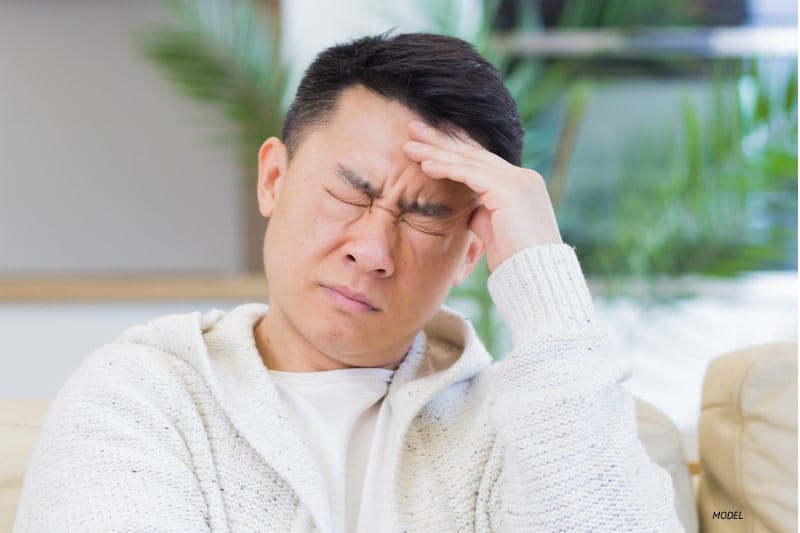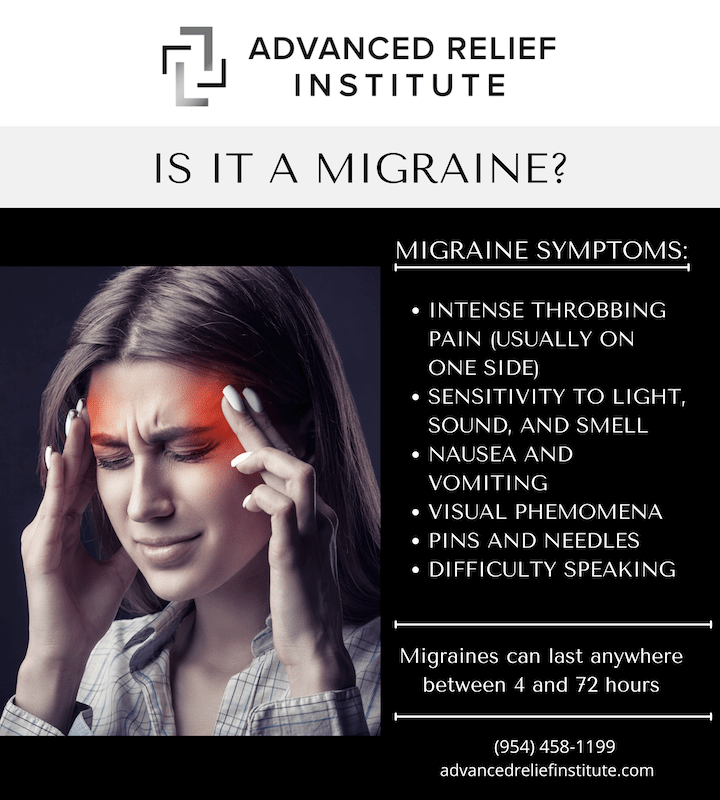3 Minute Read:
Migraines are far worse than any other commonly experienced headache, and when they hit, they hit hard. Unfortunately, migraines are all too common, affecting almost 40 million people in the U.S. alone.

Migraine pain can arrive at the most inopportune times, which makes living a full and active life difficult. This uncertainty can be challenging when those with chronic migraines try to schedule or attend meaningful events in their life.
Fortunately, botulinum toxin, marketed as BOTOX®, can help provide relief for most chronic migraine sufferers.
What Is a Migraine Headache and How Is It Different?
A migraine headache can cause severe, throbbing pain and is often accompanied by other symptoms. Migraine pain ranges in severity and can last from a few hours to many days.
Migraine pain typically affects only one side of the head, but sometimes both sides are affected. They generally occur in four distinct phases, though every migraine and migraine sufferer is different, and not everyone experiences every phase.

Phase #1: Premonitory Phase
The premonitory phase, also known as the prodrome or pre-headache phase, refers to signs and symptoms preceding the headache by hours or, in some cases, days.
Premonitory phase symptoms can include:
- Unexplained changes in mood
- Sudden food cravings
- Stiff neck
- Yawning
- Gastric distress
- Sensitivity to sound, light, or smells
- Problems with vision (seeing an aura)
Phase #2: Aura Phase
Auras are sensory disturbances that occur prior to or during a migraine attack. Auras are known to affect vision but can also impact the senses of touch and speech.
Visual auras are the most common and may involve the following:
- Blurred vision
- Zig-zagging lines
- Flashing lights
- Blind spots that move or grow over time
These symptoms can occur in one or both eyes.
Sensory auras usually cause numbness or tingling in the arm that radiates to the face, and motor auras affect a person’s ability to speak, write, and think clearly.
Phase #3: Headache Phase
Migraine headache pain can range from mild to severe, and in some cases, there is no headache. Individuals experiencing a severe migraine headache may have to seek emergency medical care.

During the headache phase or just after the premonitory phase, nausea, vomiting, and dizziness are common migraine symptoms.
Phase# 4: Postdrome Phase
Migraine sufferers may feel exhausted, confused, or unwell for a few hours to several days during the postdrome or post-headache phase.
All Migraines Are Not Equal
Some people don’t experience the aura, while others have visual symptoms but never experience the headache pain.
Individuals with chronic migraine headaches have unique symptoms, and most require medical intervention.
Criteria for Chronic Migraine
- 15 or more days of headache pain in a month
- Eight or more of those days are clearly due to migraine
- These headaches or migraines last at least four hours
Finding Relief From Migraine Pain
There are several methods to treat migraines.
- Medications
- Nerve blocks
- Trigger point injections
- BOTOX®
BOTOX®, has proven to be quite effective in minimizing and treating migraines, and if you are near Oakland Park, Aventura, or Boca Raton, Florida, Advanced Relief Institute can help.
We do not believe in the one size fits all approach and will carefully assess your condition to create a treatment plan that addresses your unique case.
What About Cluster Headaches?
At Advanced Relief Institute, we can also treat cluster headaches (also known as suicide headaches because the pain can be unbearable).
We use treatments similar to those used with migraines but tailor care according to your needs.
Recent studies show promise, and many cluster headache patients have been treated successfully with BOTOX®.
Interested in Learning More
Contact our Florida pain relief experts today to learn more. We can help reduce your pain. Call us at (954) 458-1199.

